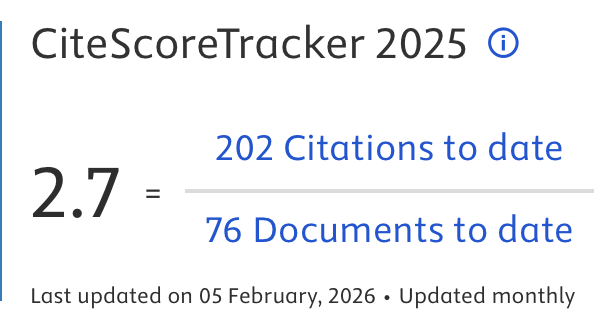Konstruksi Pemahaman Masyarakat Terhadap Hadis "Kullu Bid'atin Dlalalah"
DOI:
https://doi.org/10.14421/qh.2016.1702-01Abstract
This article discusses the problems of bid’ah in society. The problems originated from differences in the public’s understanding of the hadis kullu bid’atin dlalalah. Such defferences include the definition of bid’ah, bid’ah classification, and the methods used to judge the practices that are not practiced by Rasulullah, companions, and scholars of the Salaf. The situation often cause conflicts in society. To solve this problem, Peter L. Berger gave some solution by theory of social contruction. This theory told us that the problems of bid’ah are caused by three processes, there are eksternalitation, objectivation, and internalitation. And the problems can be solved by two processes, there are institusionalitation and socialization.Key Word: Bid’ah, Hadis, Sosial Contruction.
References
Abidin, Firanda Andirja. Bid’ah Hasanah: Mengenal Bid’ah dan Sunnah. Jakarta: Naasirussunah, 2013.
Al-Arfaj, Abdul Ilah ibn Husain. Konsep Bid’ah dan Toleransi Fiqih. Jakarta: Al-I’tisham, 2013.
Al-Qasimi, Muhammad Jamaluddin. Bid’ah dalam Masjid. Jakarta: Pustaka Azzam, 2005.
Al-Turki, Abdullah ibn Abdul Muhsin. Dasar-dasar Akidah para Ulama Salaf, terj. Nabhani Idris. Jakarta: Qalam, 1995.
Ahmad, Mansur MZ. Islam Hijau Merangkul Budaya Menyambut Kearifan Lokal. Yogyakarta: alQadir Press, 2014.
Ali, M. Mahrus. Mantan Kiai NU Meluruskan Ritual-ritual Kiai Bid’ah yang Dianggap Sunnah. Surabaya: Laa Tasyuki Press, 2008.
An-Nasa’I, Ahmad ibn Su’aib Abu Abdur Rahman. Sunan an-Nasa’I. Halb: Maktabah al-Mathbu’at al-Islamiyyah, 1986.
Ash-Shiddiqiy, Teungku Muhammad. Hasbiy Kriteria Sunnah dan Bid’ah. Jakarta: Pustaka Rezki Putra, 1999.
CD-ROM Gawami’ al-Kalim Hushn ad-Difa’ al-Awwal ‘an as-Sunnah, Al-Idarah al-‘Ammah li al-Auqaf.
Delanty, Gerard dkk., Teori Sosial dari Klasik Sampai Post Modern, ed. Bryan S. Turner, terj. E. Setiawati A. dan Roh Shufiyati. Yogyakarta: Pustaka Pelajar, 2012.
Hidayat, Nur. Kerancuan Memahami Islam. Yogyakarta: Pustaka Pesantren, 2012.
M
adchan, Anis. Tahlil dan Kenduri: tradisi santri dan kiai. Yogyakarta: LkiS Group–pustaka pesantren, tt.
Shalihin, Muhammad. Ritual dan Tradisi Islam Jawa. Yogyakarta: Narasi, 2010.
Downloads
Published
Issue
Section
License
Publishing your paper with Jurnal Studi Ilmu-ilmu al-Qur'an dan Hadis means that the author or authors retain the copyright in the paper. Jurnal Studi Ilmu-ilmu al-Qur'an dan Hadis uses license CC-BY-NC-ND or an equivalent license as the optimal license for the publication, distribution, use, and reuse of scholarly works. This license permits anyone to copy and redistribute the material in any medium or format and must give appropriate credit, provide a link to the license, and indicate if changes were made. If you remix, translate, transform or build upon the material you may use it for private use only and not for distribution. Jurnal Studi Ilmu-ilmu al-Qur'an dan Hadis granted an exclusive non-commercial reuse license by the author(s), but the author(s) are able to put the paper onto a website, distribute it to colleagues, give it to students, use it in your thesis, etc, so long as the use is not directed at a commercial advantage or toward private monetary gain. The author(s) can reuse the figures and tables and other information contained in their paper published by Jurnal Studi Ilmu-ilmu al-Qur'an dan Hadis in future papers or work without having to ask anyone for permission, provided that the figures, tables, or other information that is included in the new paper or work properly references the published paper as the source of the figures, tables or other information, and the new paper or work is not direct at a private monetary gain or commercial advantage.
Jurnal Studi Ilmu-ilmu al-Qur'an dan Hadis journal Open Acces articles are distrubuted under the Creative Commons Attribution-NonCommercial-NoDerivatives 4.0 International (CC BY-NC-ND 4.0). Article can be read, copy and redistribute the material ini any medium or format under the following conditions:
Attribution — You must give appropriate credit, provide a link to the license, and indicate if changes were made. You may do so in any reasonable manner, but not in any way that suggests the licensor endorses you or your use.
NonCommercial — You may not use the material for commercial purposes.
NoDerivatives — If you remix, transform, or build upon the material, you may not distribute the modified material.










